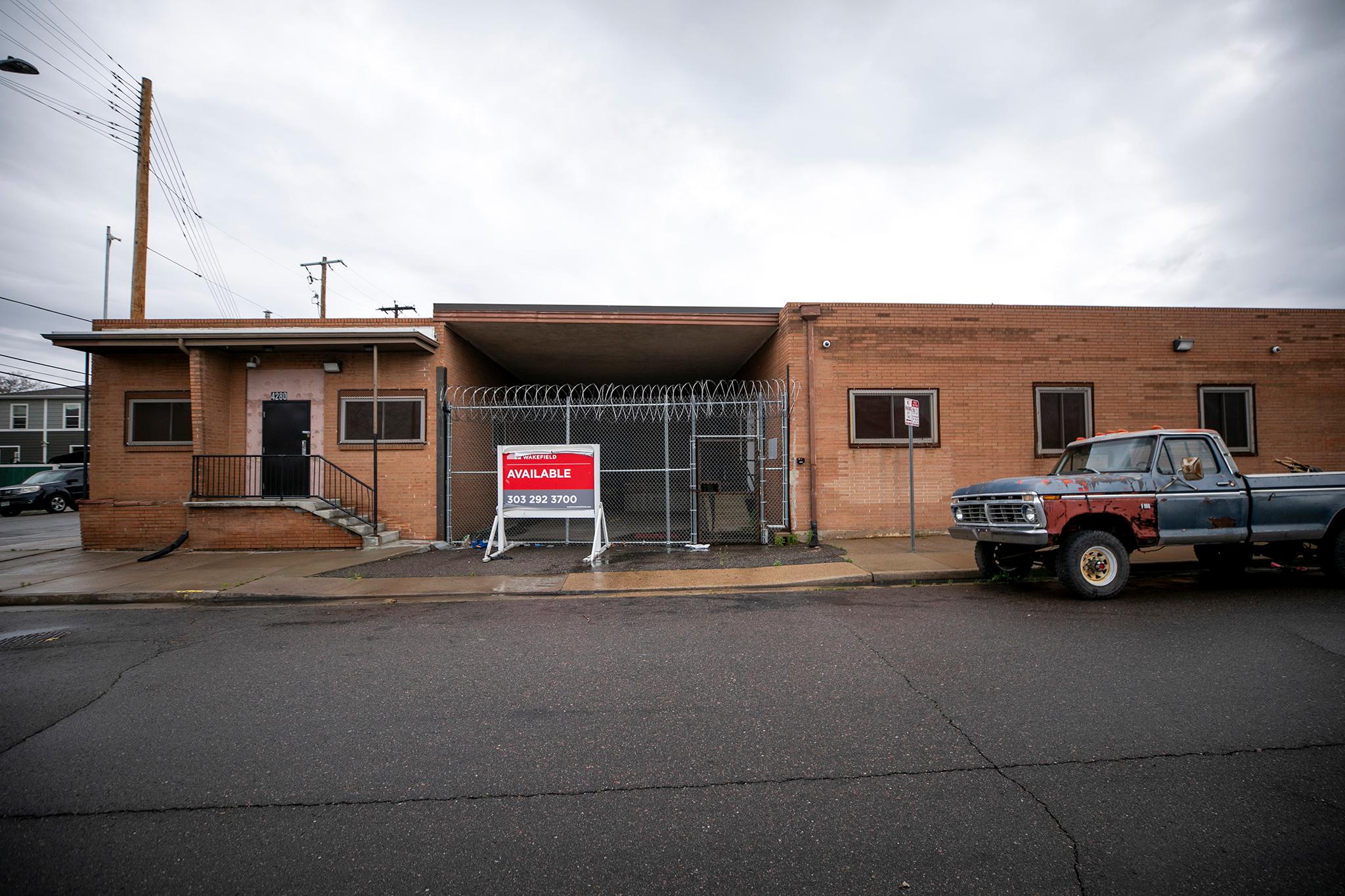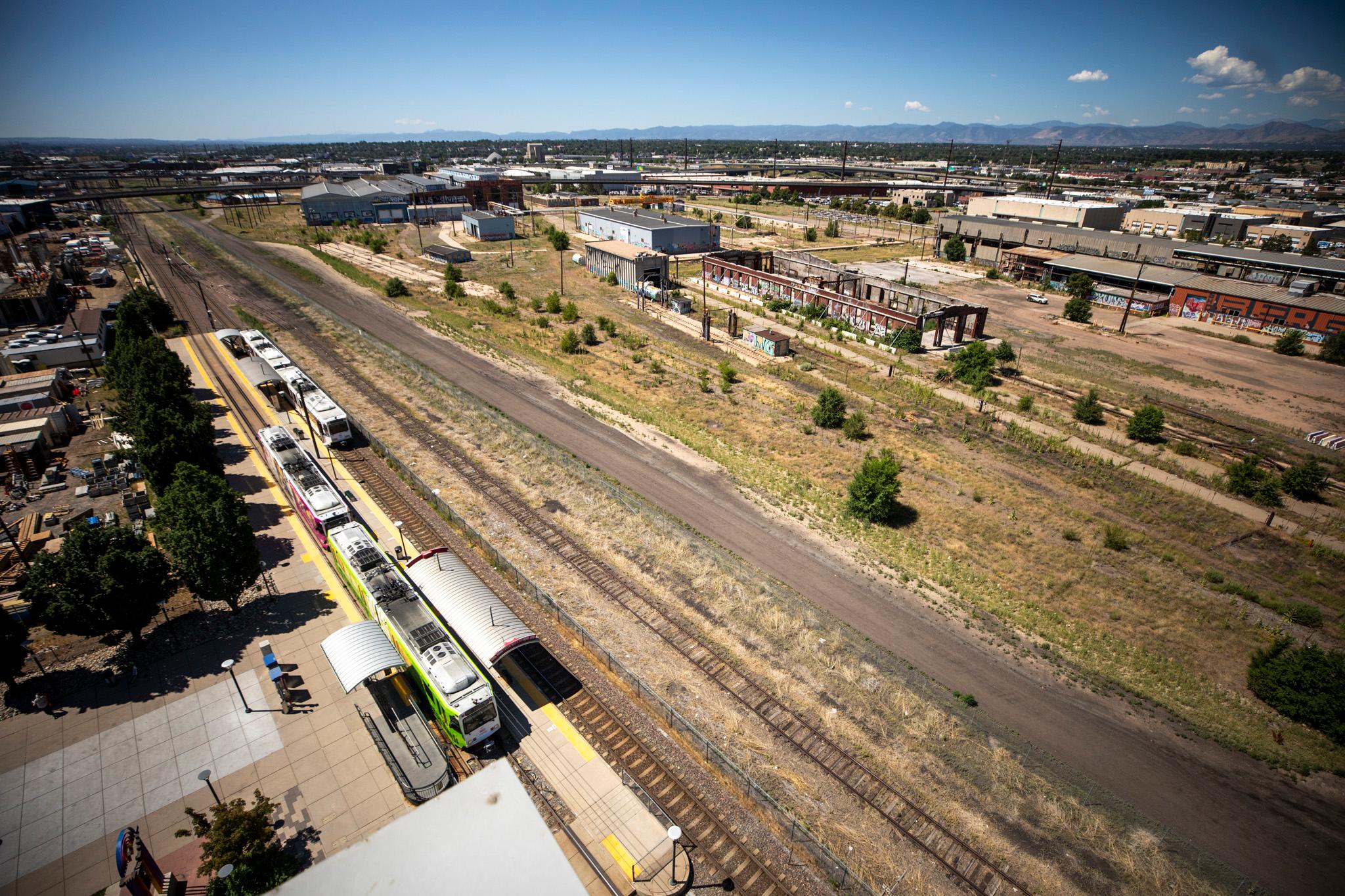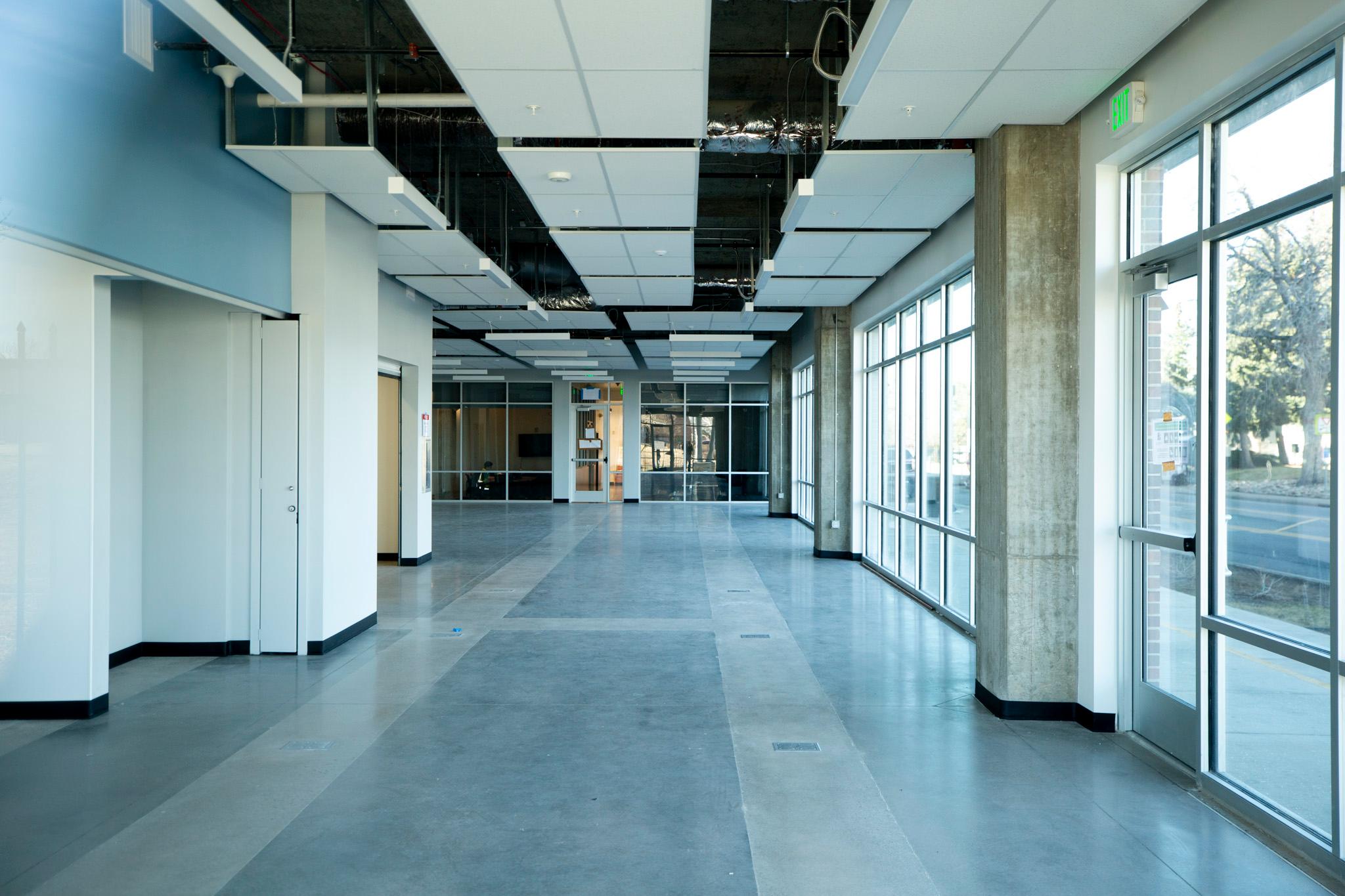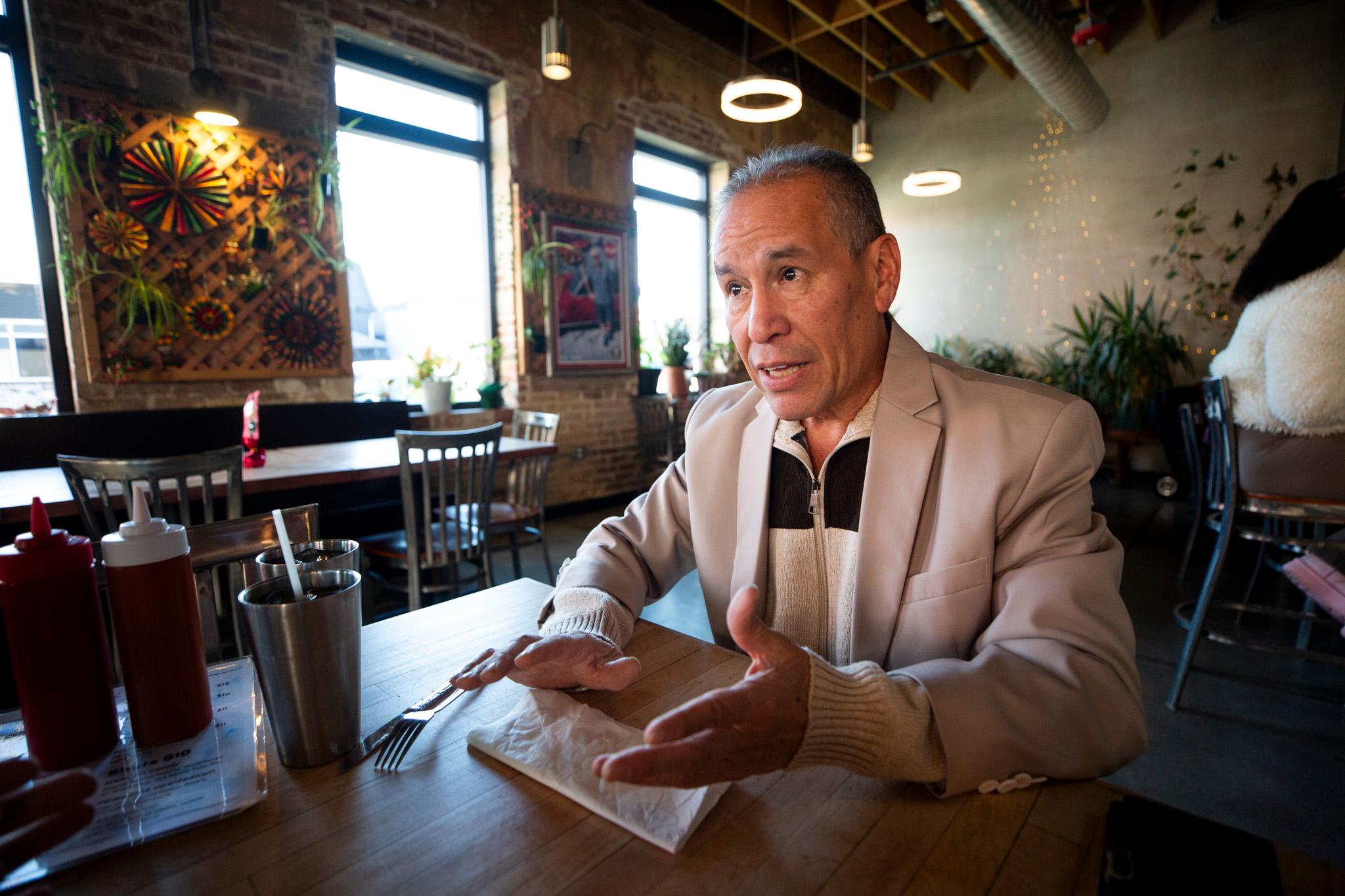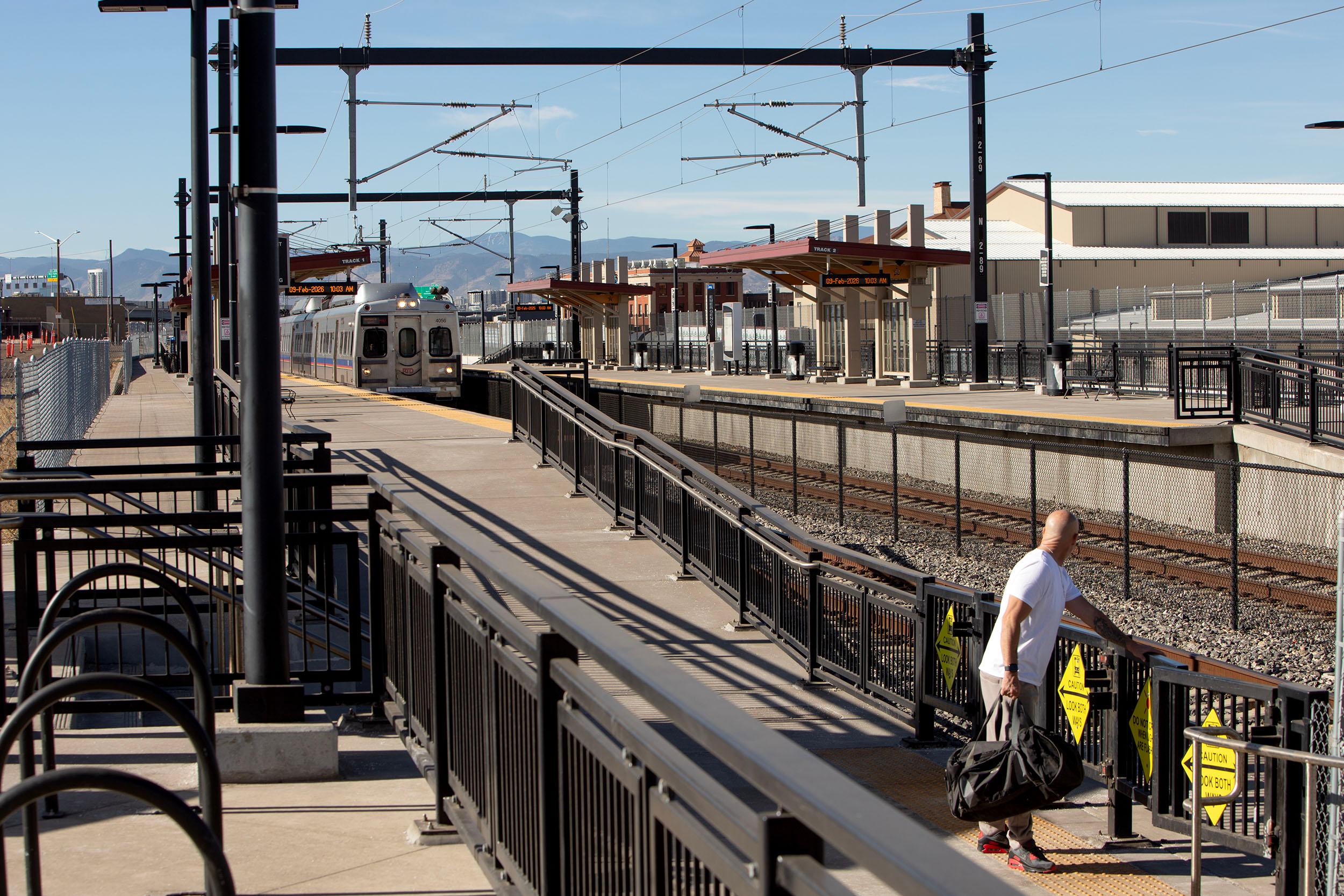Last year, Denver launched a pilot program meant to pull the city’s most vulnerable out of loops of arrest, incarceration and homelessness.
Officials are now working to turn that pilot, called Roads to Recovery, into a permanent city service, and they’re looking for a building to become a temporary shelter and a base for some operations.
On Wednesday, Denver City Council’s Safety, Housing, Education & Homelessness Committee considered a proposal to purchase an old halfway house at 4280 N. Columbine St. to fill that need. The city could pay $3.7 million for the 13,000 square-foot property, which has room for about 60 beds.
Erin Atencio, who leads Roads to Recovery, told council members that Denver needs a 24/7 hub where people picked up by first responders can go, at any time, to begin their journey into recovery. Some might have been contacted by paramedics on a cold night; others may have been found sleeping on private property.
The Columbine Street building could eventually offer beds for people who need to warm up and stabilize. Once they do, Atencio said service providers would offer a menu of next steps, like referrals to sober living homes and treatment programs. It’s a system Roads to Recovery has tested during the daytime; after hours, there are fewer options.
“For these non-traditional hours, where police or first responders are coming upon someone at two in the morning, the option is like, ‘You need to move or you're going to jail,’ which are not always the sufficient or correct options,” she said. “So really giving these first-responding teams an ability to say, ‘Can we get you indoors? Can we get you a meal? Can you have a place that you can rest?’”
The committee agreed Wednesday to send the proposal to buy the building to the full Denver City Council.
Neighborhood groups have not weighed in on its potential use. Denverite heard mixed reactions on the idea from neighbors.
The plans are preliminary, and council members aren’t sure this is the right place for these services.
Tim Hoffman, Mayor Mike Johnston’s director of policy, said it will take time to set up the potential 24/7 facility.
“This is not something that we would expect to have operational in the short term,” he said.
The plans for the building aren’t very detailed yet. That’s because the building recently went up for sale, offering a sudden opportunity for the city, Atencio said.
Overall, Atencio told the committee she hopes for a hub filled with staffers who are trained to work with people in addiction and homelessness. Stays at the building would be limited to just a few days, enough time for someone to stabilize and choose their next step towards recovery.
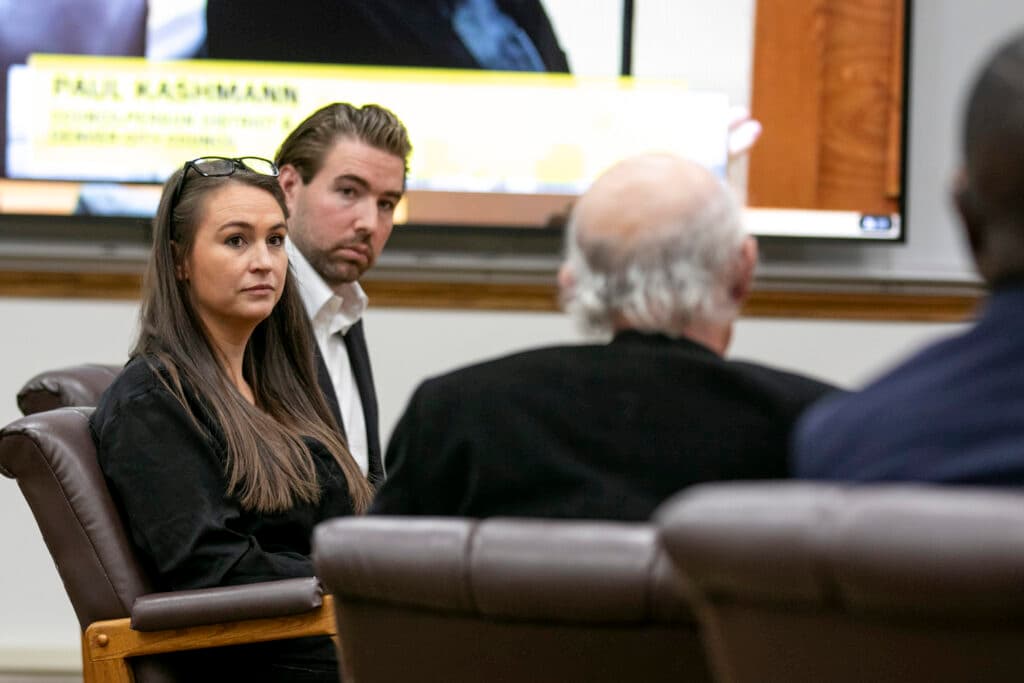
Council members agreed that the gaps Atencio and Hoffman presented need to be addressed, but members Chris Hinds and Amanda Sawyer noted the Columbine Street building’s zoning might make it a poor choice.
The building was previously the home to a CoreCivic halfway house. Hinds noted that there are very few parcels in the city where it’s legal to run halfway houses, which are facilities where people can finish longer prison sentences under supervision and with access to the outside world.
It’s an issue that came to a head after Hinds and other members voted to end contracts with national private prison operators CoreCivic and GEO Group in 2019. Officials realized they would have trouble replacing halfway house beds after nixing those contracts on moral grounds.
Hinds added he still might support purchasing the property. If it doesn’t become Roads to Recovery’s 24/7 hub, the city might need the “unicorn” property for community corrections.
If Roads to Recovery’s plan moves forward, officials will solicit public input.
It’s part of the city’s usual process for projects like this. Jordan Fuja, spokesperson for Mayor Mike Johnston, said any plans for using the Columbine building, or any other, will have to pass muster with neighbors.
Officials know that opening a shelter anywhere in the city often comes with strong pushback from neighbors worried about safety and appearances.
They might find a similar sentiment in Elyria Swansea, where housing has sprouted up around the old halfway house property in recent years.
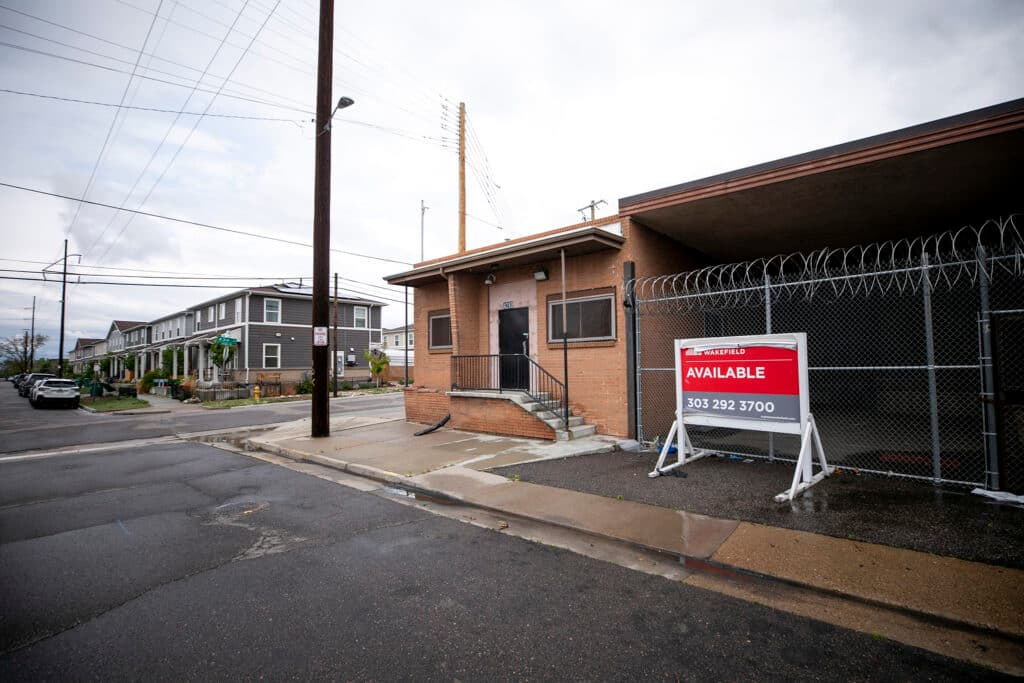
Adam Kucsan moved into one newer build about a year ago, and he’s loved the area so far.
“The neighborhood is definitely up and coming. It’s just a lot of hardworking people,” he told us. “The neighborhood has its own struggles, and I don’t think adding something like that is going to benefit the local community, to be honest, especially from home prices and desirability.”
Kucsan said he agrees Denver needs more resources to help people. But he and his wife are about to have a kid; he did not love the idea that people dealing with addiction and homelessness might be delivered to a building within eyeshot of his front yard.
Kucsan moved in after the halfway house had already closed. His neighbor, Stella Ronquillo, spent decades living up the block from that facility, when it was open.
No, she said, she was never bothered by the community corrections center when it was up and running. And the idea that a resource hub might come to her corner of the neighborhood didn’t bother her either.
“A lot of people need help,” she said.

